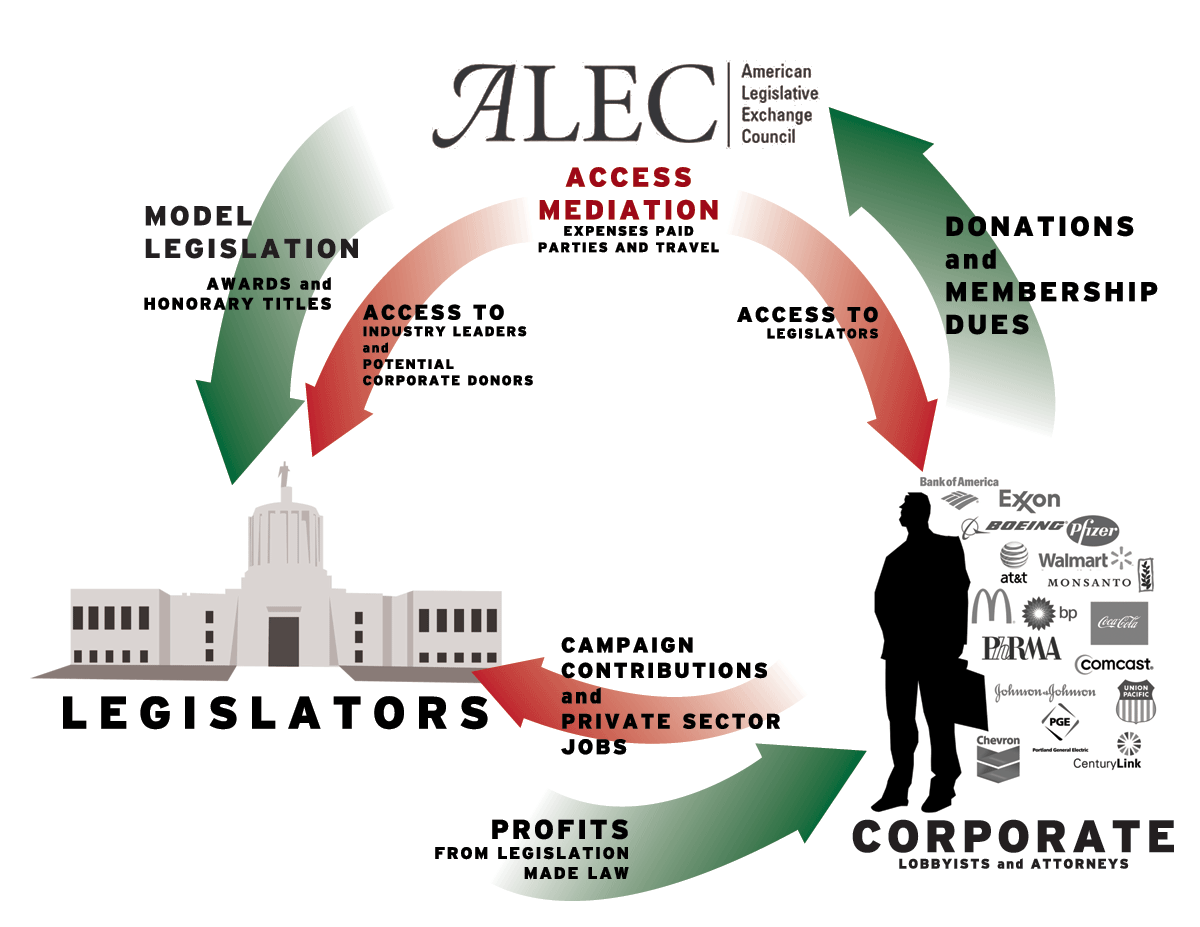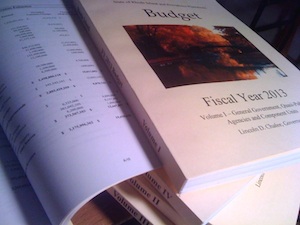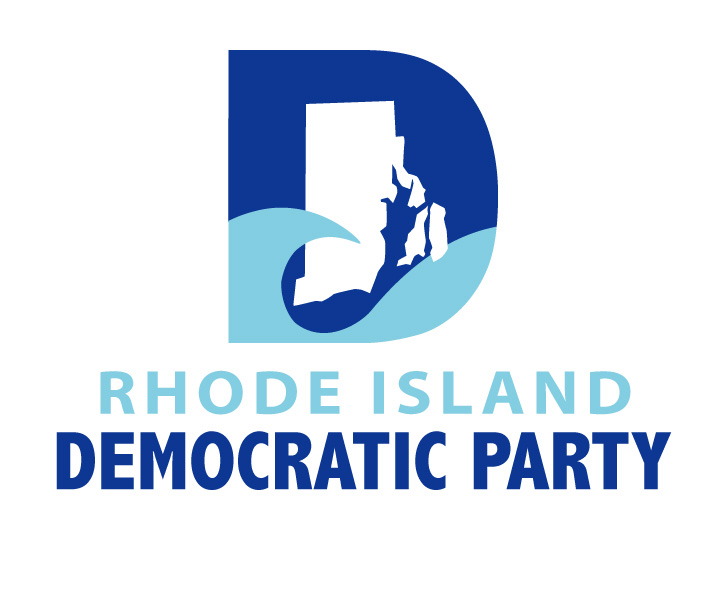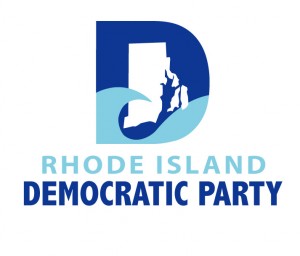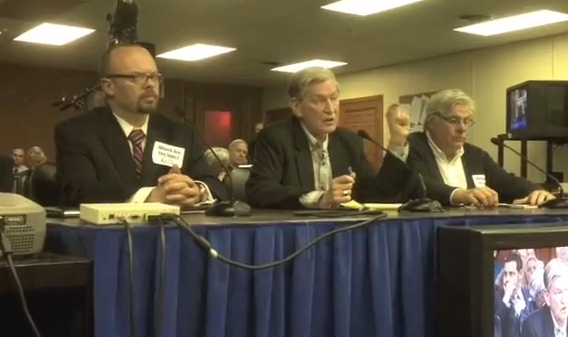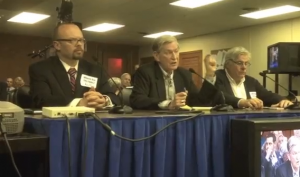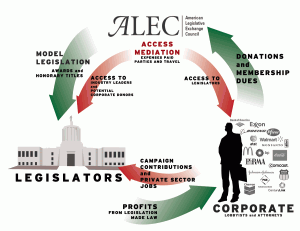 Democratic legislators distanced themselves from involvement with ALEC, the far right wing group that acts as a stealth lobby organization to state legislators, saying they signed up because Rep. Jon Brien asked them to do so.
Democratic legislators distanced themselves from involvement with ALEC, the far right wing group that acts as a stealth lobby organization to state legislators, saying they signed up because Rep. Jon Brien asked them to do so.
Many said they didn’t know much about the organization, even though it has been all over the news as of late, and that they would be taking a closer look to see if it jibes with their politics.
“I was asked to sign up,” said Rep. Peter Martin, a conservative Democrat from Newport, saying Brien asked him to join. “Now, I’m questioning why I did. I’m learning more about it and thinking I better learn a little more. I like Jon Brien but sometimes he’s a little more to the right than I am.”
Brien, a conservative Democrat, recently joined ALEC’s national board of directors. He said ALEC is actively trying to recruit more Democrats. A list of local members of the American Legislative Exchange Council indicates that more than 20 percent of the General Assembly belong to the group.
Rep. John Edwards, of Tiverton, said he didn’t join ALEC.
“Someone signed me up,” he said. “I thought it was more like the [National Conference of State Legislatures].”
The NCSL is a bipartisan group that helps state lawmakers share ideas. ALEC, on the other hand, supports only conservative ideology and is backed by corporate America. Edwards said being aligned with corporate America isn’t necessarily a bad thing, but it can be he added.
“Sometimes corporate America is aligned with my values and sometimes it isn’t, like when they are sticking it to the middle class,” he said. “I’m a moderate Democrat. I’m not one of those far-right Democrats.”
Rep. Sam Azzinaro, a conservative Democrat from Westerly, said he knew nothing about ALEC, even though he was on a list of members provided by Brien.
Rep. Lisa Baldelli-Hunt, a Woonsocket Democrat, said her membership in ALEC does not necessarily imply that she supports the group.
“If someone joins an organization, it’s not always because they are an advocate for that organization,” she said. “It might be just that they are looking for more information.”
Rep. Michael Marcello, a Scituate Democrat, echoed this sentiment, saying, “I don’t think there’s anything wrong with trying to get more information. It doesn’t mean I support 100 percent of what they do.”
In fact, Marcello distance himself from many of ALEC’s legislative priorities, saying he doesn’t support voter ID as well as other ALEC initiatives. “I didn’t join as a form of support, I joined to get more information.”
He said he and Brien attended an ALEC reception at G-Tech earlier in the year. Brien was an attorney for G-Tech from 2002 to 2007, and said he attended his first ALEC reception at G-Tech years ago when his wife was a member of the General Assembly, at the request of former Woonsocket legislator Jerry Martineau, who was convicted on corruption charges in 2009 for his cozy relationship with CVS and Blue Cross.
Brien, one of the more conservative members of the state legislature from either party, said he signed up most of the House members during the special pension session in November.
“They all thought it sounded good when they signed up,” he said. “My goal is to sign up as many new members as I can.”
Brien said the special pension session came on the heels of ALEC’s annual meeting last summer, at which he said he spent four days focusing on education reform. He described ALEC as being nonpartisan.
“I don’t find education reform to be a divisive or partisan or ideological issue,” he said. But, of course, in Rhode Island it is – and during the summer Brien almost got into a fight in an elevator with an official from the NEARI after the two exchanged words outside of a courtroom when another union official was on trial for cyberharassing an anti-union Democrat during the 2010 election season.
He said his politics are closely aligned with ALEC’s legislative agenda, but that he will not do its bidding.
“Is my goal to have ALEC have influence at the State House? No,” he said. “My goal is to bring together politically like-minded representatives and senators when we believe in the same issues and ideas. If we do that, ALEC will by osmosis have influence at the State House.”

